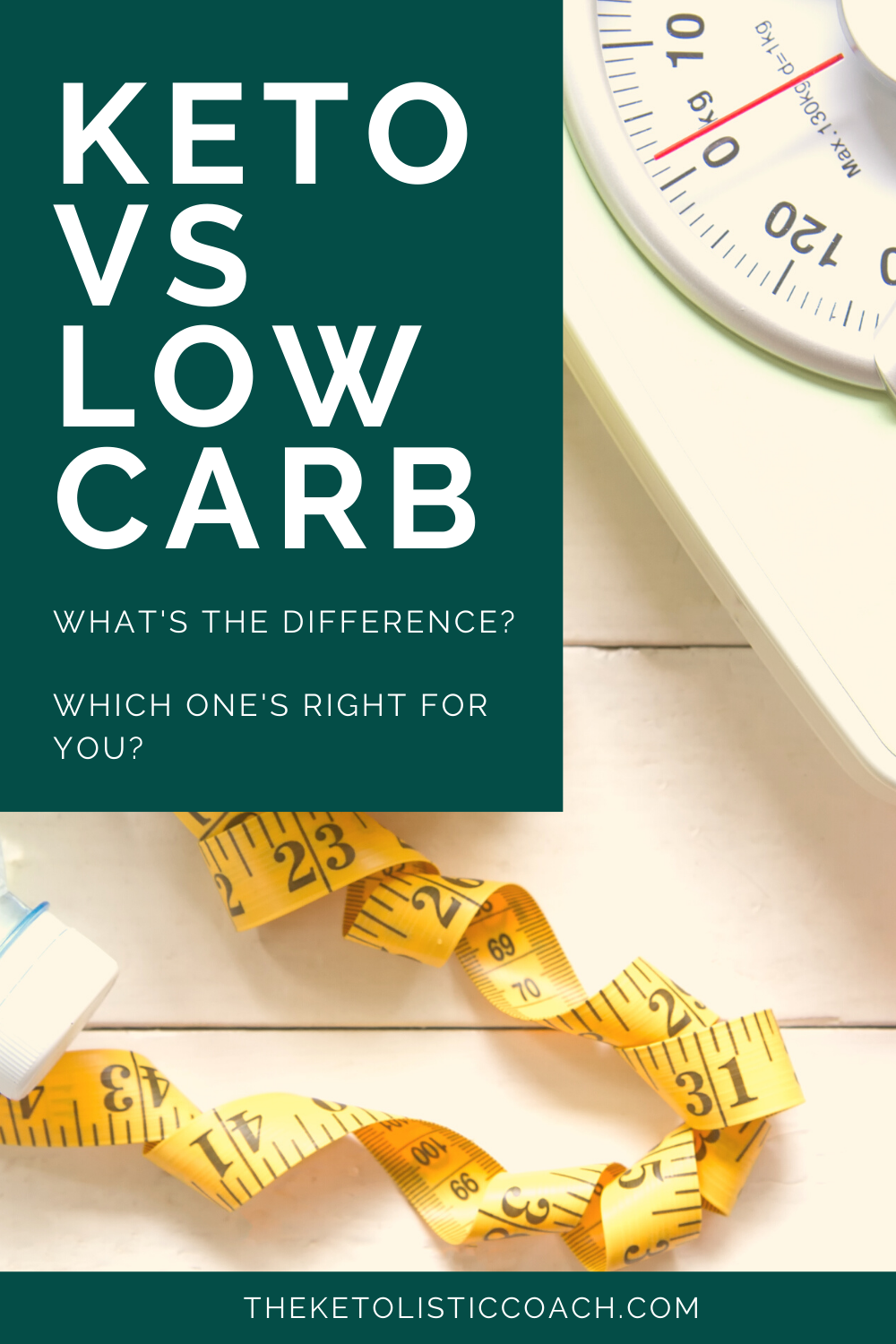WHAT’S THE DIFFERENCE?
WHICH ONE’S RIGHT FOR YOU?
Both a ketogenic diet and a low carb diet involve limiting the amount of carbohydrates you intake on a daily basis. Both diets have become extremely popular over the last few years as countless people have found great success with losing weight, while improving their overall health. There is conflicting information on which diet is “the best” so it’s important to follow a plan that feels best for you. Let’s look at the differences between the two diets, and assess some pro’s and con’s, to help you figure which diet may best suit your health and weight loss goals.
GRAB YOUR FREE DAILY KETO HABIT CHECKLIST BELOW!
WHAT’S A LOW CARB DIET?
There are many different forms, but typically a low carb diet restricts carbohydrates from bread, rice, grains, pastas, and processed foods, and sugary food or drinks. Despite having no specific set limitations, as a general rule carbohydrates on a low carb diet are limited to 50-150g net carbs per day. (Net carbs = Total Carbs - Fiber)
A typical low carb diet tends to be lower in carbs, and higher in protein than the Standard American Diet. By restricting carbs, you may also eliminate calories that come from highly processed foods, and these things working together may promote weight loss.
Examples of popular low carb diets include Atkins, Paleo, and a Mediterranean diet. Low carb diets have been linked to many health benefits such as weight loss, managing diabetes, improved blood sugar regulation, and decreasing cardiovascular risks.
LOW CARB DIET PRO’S & CON’S
Pros
may promote weight loss
eliminates many processed carbohydrate and sugary foods & drinks
good for more explosive exercise like sprinting or weight lifting
can be sustained long term
less restrictive than keto
Cons
limits food options
may cause you to feel weak
may experience constipation
may experience slower weight loss results
GRAB YOUR FREE DAILY KETO HABIT CHECKLIST BELOW!
WHAT’S A KETO DIET?
The ketogenic diet is designed to keep carbs so low that you enter a state known as ketosis. Ketosis is a metabolic state that occurs when the carb intake is very low, insulin levels drop, fatty acids are released and transferred to the liver, where they become ketones. In a Standard American Diet, our body mostly runs on glycogen from eating carbs. When we lower our carb intake over a period of time to a level of ketosis, our body runs on ketones for fuel instead.
A keto diet focuses on high fat, moderate or high protein, and very limited carbohydrates. The typical range of daily intake for carbs for keto is below 20-50g net carbs. While a keto diet allows for a high fat intake, it is important to know that calories still count. You are simply using fats instead of carbs to help you feel full and satisfied.
Ketogenic diets have been linked to many incredible benefits such as treating epilepsy, controlling insulin levels, managing diabetes, and even impairing growth of certain types of cancer. It has also helped many people with mental clarity, increased energy, and decreasing inflammation in the body.
KETO PRO’S & CON’S
Pro’s
may promote weight loss
has therapeutic benefits
may reduce appetite
stable energy and blood sugars
good for more endurance type exercise such as jogging
Con’s
limits food options
may experience constipation
long term data is limited
may be too restrictive to maintain long term
GRAB YOUR FREE DAILY KETO HABIT CHECKLIST BELOW!
WHICH DIET IS BEST FOR YOU?
The “best diet” is entirely a personal thing. It depends on your biology, lifestyle, pre-existing medical issues, your goals, and a variety of other factors. Some people feel their best on a keto diet, other people feel their best doing low carb. The most important thing is to find a way of eating that makes you feel your best, that you can do long term. It is important to consider what you feel is more manageable, that you can make into a true lifestyle change - not just a “quick fix diet”.
There may be some trial and error until you decide which lifestyle is right for you. If you want to start a keto diet - it is HIGHLY recommended to transition to a low carb diet for a week or two first. This will allow your body to adjust more easily, and will make it easier to decrease your carb intake further to get into ketosis. It will also allow you to get accustomed to eating more whole foods, and eliminating high-carb and high-sugar processed foods from your kitchen.
The bottom line is that both diets restrict carbohydrates, and can help you lose weight. There is no right or wrong answer. Keto has additional therapeutic benefits, but is a bit more restrictive with your carb intake. Low carb allows for a bit more carbs, but may not burn body fat as quickly. The key is deciding which is more sustainable for you, and allows you to eat foods you’ll enjoy long term. If you want any help starting a keto diet, or you feel like keto is too restrictive for you and you’re interested in adding carbs back into your diet without ruining your weight loss progress, click here to learn more about how I can help! You can also join the free Keto Weight Loss For Women Facebook community full of supportive keto women on their own keto journeys!




